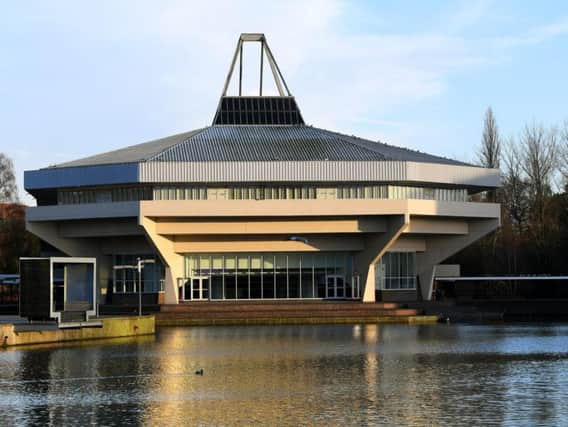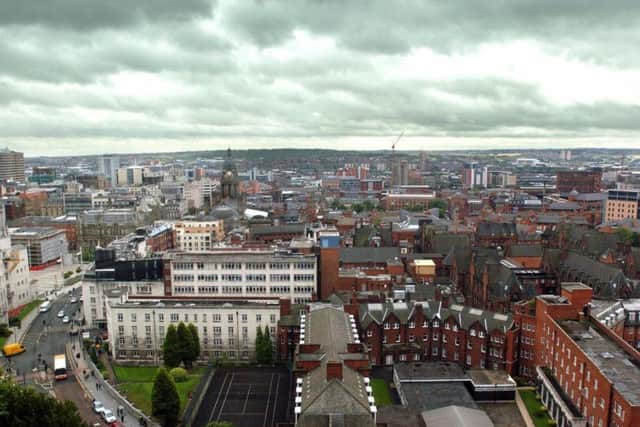Why universities should embrace and not fear our post-Brexit future - Chris Skidmore


And nowhere in our society is this clearer than in our universities and wider knowledge economy. After Brexit, we want not just a friendly relationship with our European neighbours and allies, but also to reach out and build better connections with the wider world.
I have always believed that engagement is the key to better policy. That has been the very purpose of my 40-plus visits to different universities – to listen, to learn and to take action where it matters.
Advertisement
Hide AdAdvertisement
Hide AdSheffield University’s new vice chancellor on the challenges of running a modern university and the impact of BrexitWhat I have found, absolutely everywhere I have visited, is a research and innovation ecosystem that is truly international. I’m always struck when walking down corridors in departments across the country by the wealth of international names adorning the doors. The staff, students and researchers I meet on my visits come from right across the globe.


If we want to see evidence of ‘Global Britain’, then we need to look no further. One of the enablers of this great openness has been our partnerships with the continent of Europe, over many centuries, helping us to develop a shared sense of culture, shared collective experiences, and a like-minded approach to the values of civilisation, enlightenment and liberty.
Our intellectual and cultural bonds with Europe run deep and have lasted for centuries longer than any EU programme. They are at the heart of our identity and the foundation of our civilisation. They prospered long before the EU’s existence, and must continue after we leave. We are leaving the EU – we are not leaving Europe.
It is no coincidence that Shakespeare chose to set many of his great plays in other European nations, like Italy and Denmark. That our great masters like Constable and Gainsborough were frequently inspired by art movements from the Continent – from France and the Netherlands. Even The Beatles crafted their trade in the bars and clubs of Hamburg. But it’s not all one-sided.
Advertisement
Hide AdAdvertisement
Hide Ad'Hospitality sector must collaborate to tackle skills shortfall after Brexit'The UK, too, has given our European neighbours so much in return. British composers and musicians have firmly impacted the European music scene – from William Byrd, who became one of the greatest composers of European Renaissance music, to the late, great Queen frontman, Freddie Mercury, who proudly sang about the European city Barcelona in 1987.
British architects, too, have shaped the cityscapes of many of our European neighbours. Just take the dome on top of the Berlin Reichstag, designed by none other than our very own Sir Norman Foster. Irrespective of Brexit, sowing the seeds of intellectual and cultural unity across Europe is something that absolutely can and must continue.
Yet, we cannot ignore the basic fact some of our largest international partnerships in science and research to date have been undertaken while we’ve been a member of the EU, where we’ve worked with our international partners to attract talented minds to the UK, forging new shared missions, and broadening our horizons.
Recent history shows us the true value of international collaboration – and we should draw inspiration from this as we form new and wider collaborations outside the EU. For instance, in 2017, nearly 20,000 UK higher education students and academics undertook placements abroad, as part of the Erasmus+ mobility scheme – which is itself not confined to the EU alone.
Advertisement
Hide AdAdvertisement
Hide AdIn return, the UK has hosted over 32,000 European higher education students. Overseas placements like this bring untold value to individuals, to businesses and to culture and society as a whole.
Or just look the fact that the UK has secured a massive 13 per cent of all funds in the Horizon 2020 funding pot, totalling around €6bn. There is no doubt that Horizon 2020 is successful because it has been powered and inspired by British excellence.
The Government has put in place guarantees for Horizon 2020, which apply whether or not we leave with a deal. Of course, outside the EU we will be able to invest in our own research programmes.
Here's why 1,800 businesses have set up a home in Leeds since the Brexit referendumI hope that we will secure a deal shortly: a deal, which we all know would enable our continued participation in EU programmes such as Horizon 2020 and Erasmus+. But if there is not movement from the EU, we are ready to leave without a deal. Politicians cannot choose which public votes they wish to respect. We will be ready for Brexit on October 31.
Advertisement
Hide AdAdvertisement
Hide AdI know that many out there are concerned about Brexit, and our future participation in European networks. To those people, I want to say this: while we are leaving the EU, we are not necessarily leaving our European collaborations behind.
But I also want us to embrace the possibility that we can go even further, that we can reach even wider. That is when our modern knowledge economy becomes truly ‘powered by openness’ – when the UK becomes truly global.
This is an edited version of a speech Science and Universities Minister Chris Skidmore gave at the British Academy.